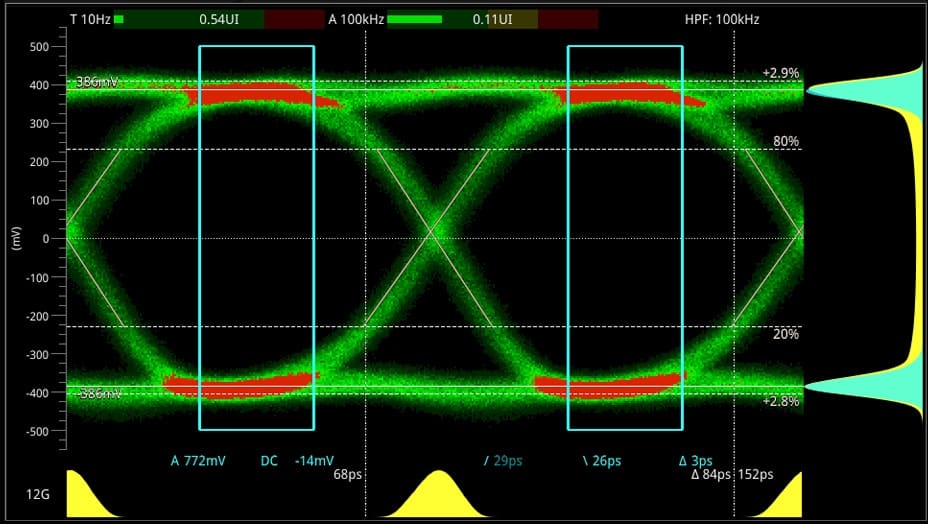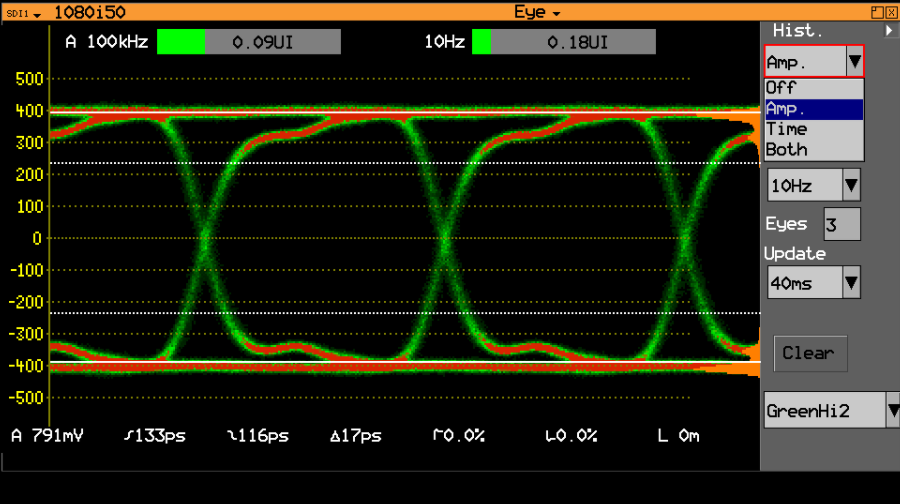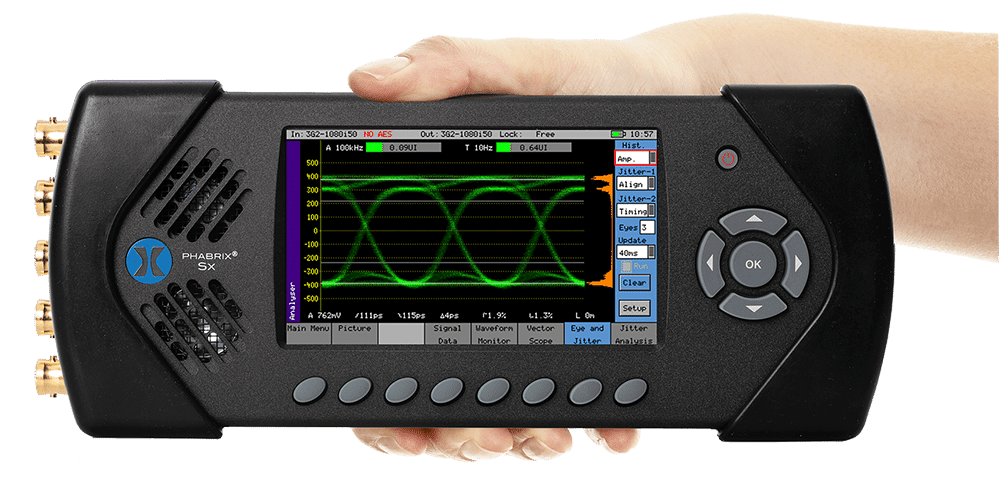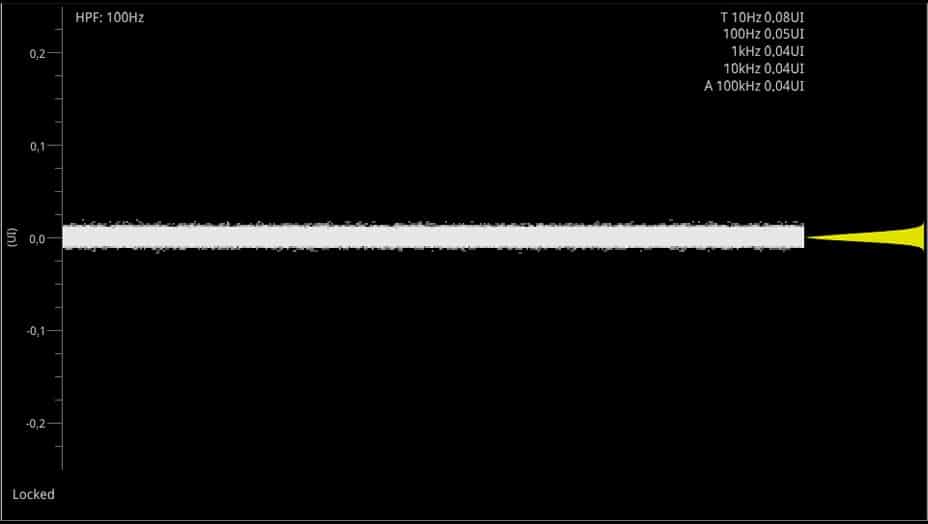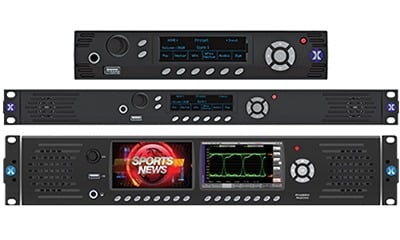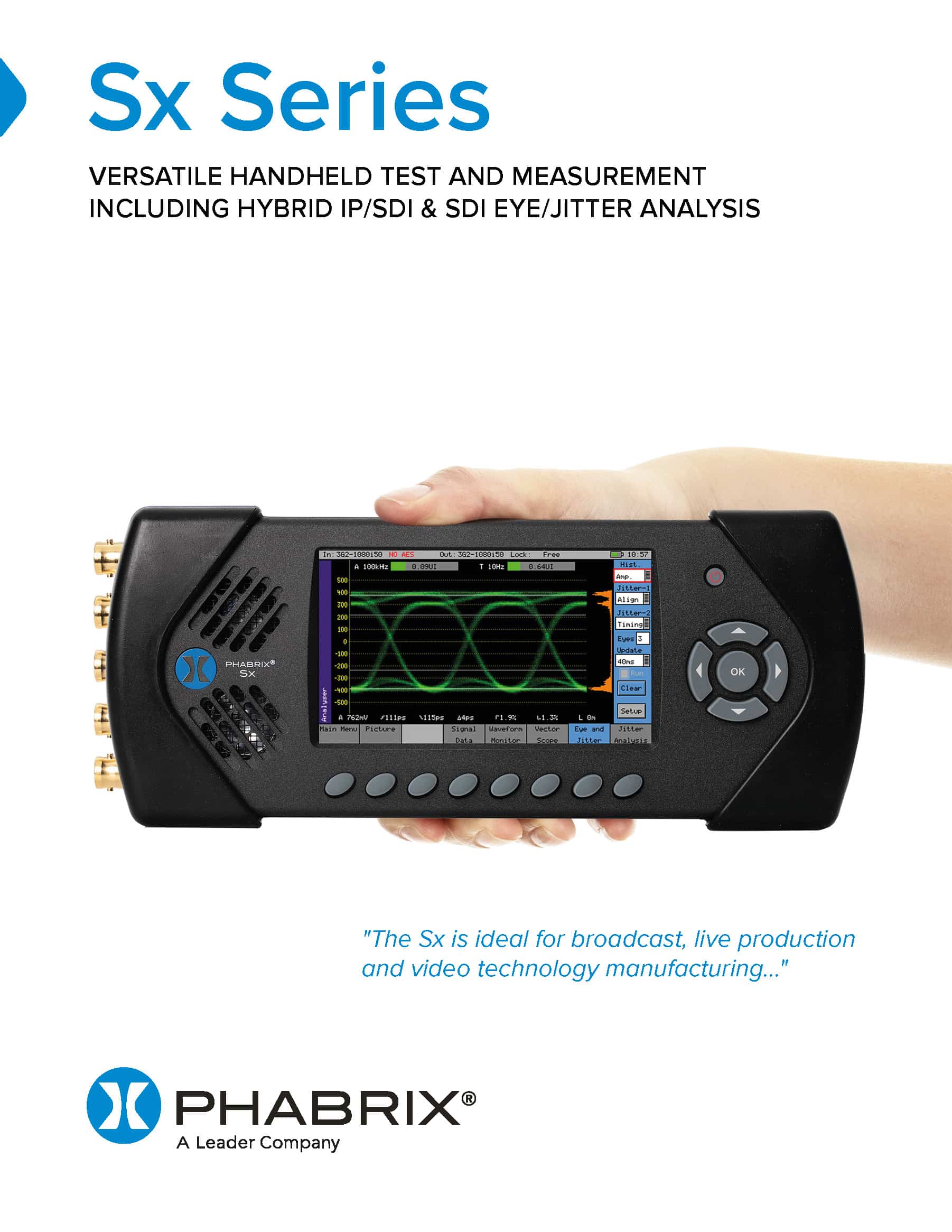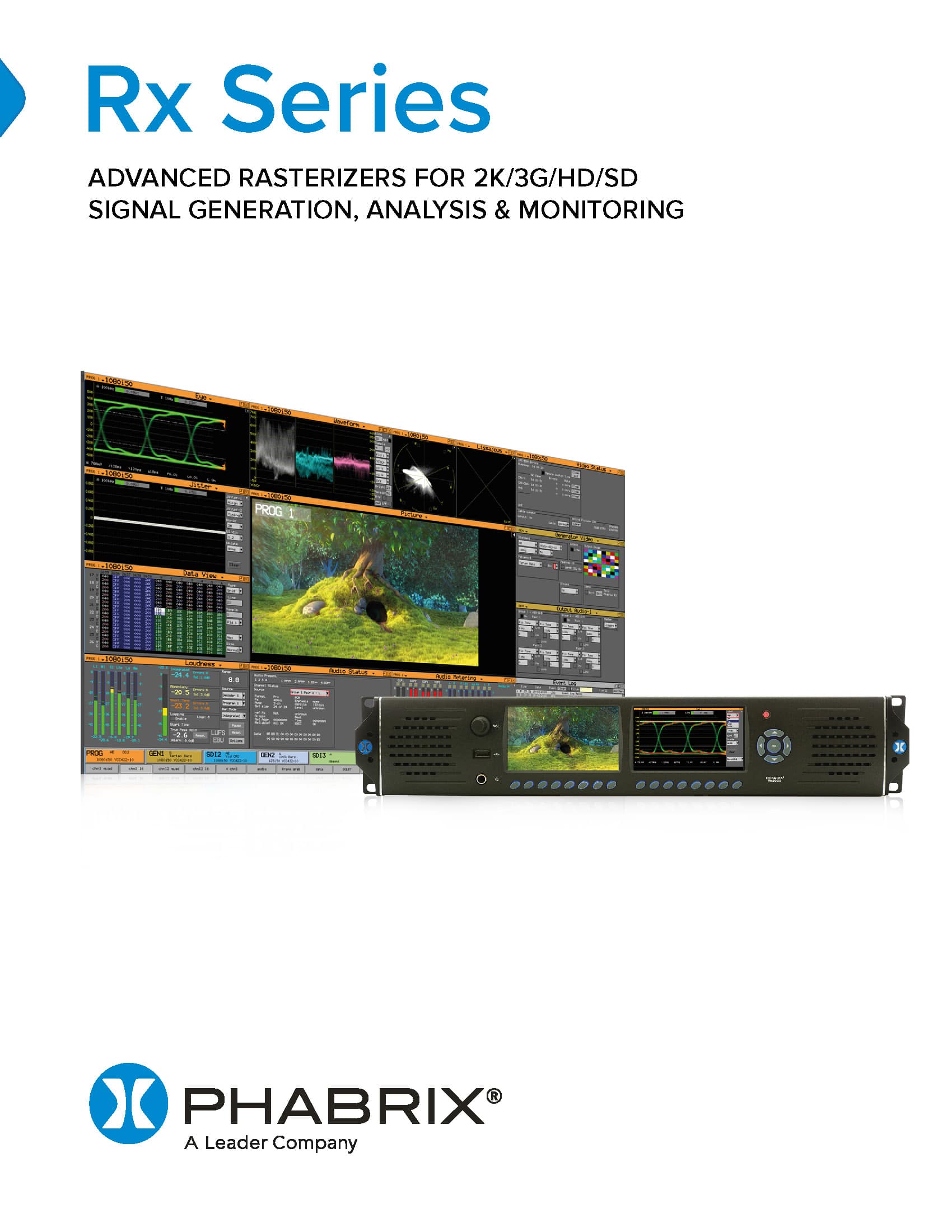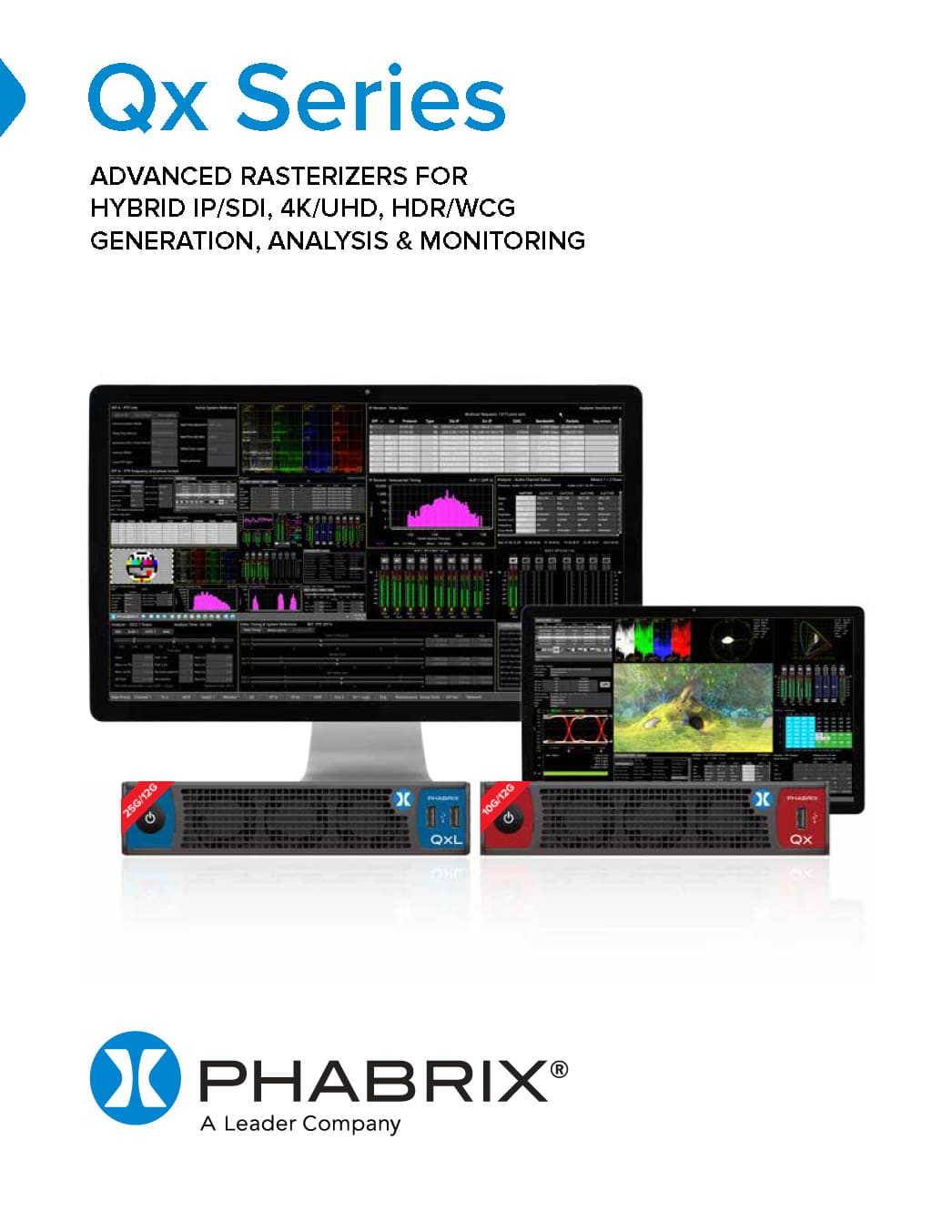SDI Physical Layer Analysis
Advanced HD-SDI – 12G-SDI Physical Layer Analysis
The use of high data rates for HD-SDI, 3G-SDI, 6G-SDI and 12G-SDI, long cable lengths and the encoding methods now in common use has resulted in a data transfer that is susceptible to jitter that can corrupt data in a dramatic way.
To manage and quantify this susceptibility, measurement techniques using eye pattern displays have become more and more important.
One challenge that engineers in a broadcast environment face is the measurement and monitoring of 3G-SDI up to 12G-SDI signal quality throughout the production chain.
Available in the Qx Series, Rx Series and SxE instruments, the Real-Time-Eye physical layer testing is ideal for highlighting any SMPTE compliance issues, line checking or product commissioning.
PHABRIX Physical Layer Analysis Solutions
Qx SERIES – UP TO 12G-SDI PHYSICAL LAYER ANALYSIS
The Qx Series’ Physical Layer Toolset is a factory fitted option for fast 12G/6G/3G/HD-SDI physical layer commissioning, testing and development. Its RTE™ (Real-Time Eye) Technology instantly highlights any SMPTE compliance issues and its realtime SDI jitter window provides simultaneous monitoring across five specified frequency bands, jitter histogram and video trigger options. Included in the option are a full range of SDI eye measurements including amplitude, DC offset, transition times and overshoot and health indication with both amplitude and time histograms, as well as choice of color, heat-map overlays and infinite persistence display.
Rx SERIES – 4 CHANNEL EYE AND JITTER ANALYSIS
Advanced diagnostic tools include up to four simultaneous Real-Time Eye™ and Jitter physical layer analysis instruments plus closed caption, loudness and Dolby® monitoring. This makes the Rx Series ideal for OB trucks, broadcast facilities and video technology manufacturers.
SxE – 3G-SDI REAL-TIME EYE PHYSICAL LAYER TESTING IN A HANDHELD DEVICE
Ideal for SDI physical layer line check, commissioning and testing, the SxE is unique in offering rapid display and analysis of 3G/HD/SD-SDI physical interfaces with a sophisticated RealTime Eye and Jitter measurement toolset.
Qx SERIES – ADVANCED SDI-STRESS TESTING
The advanced SDI-STRESS option is available for stress testing and R&D evaluations of SDI interfaces up to 12G. The option includes the ability under automation control to insert up to 128UI peak to peak SDI clock jitter from 10Hz to 10MhZ, mute any of the SDI outputs, and control the SDI scrambler, sync-bit insertion, pre-emphasis, rise time and driver amplitude. The SDI-STRESS Eye amplitude measurement provides both Shorth Mean or Mode, with a histogram overlay and a user-defined window for the exploration of eye amplitude. Pseudo-Random Binary Sequence (PRBS) generation and analysis of PRBS-7, 9, 15, 23, 31 allows for deterministic measurement of link Bit Error Rates (BER).
Related Products

QxP
The Portable QxL - 25G ST 2110 & 12G-SDI Generation, Analysis & Monitoring with Battery Power
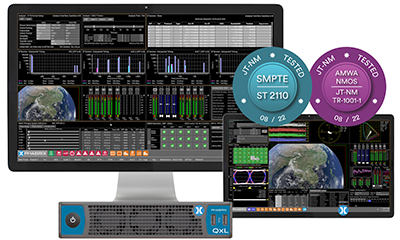
QxL
The world’s most compact, feature-rich rasterizer for realtime UHD IP workflows on a 25G network
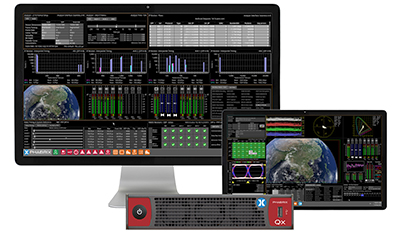
Qx
Advanced Rasterizers for Hybrid IP/SDI, 4K/UHD, HDR/WCG Generation, Analysis & Monitoring
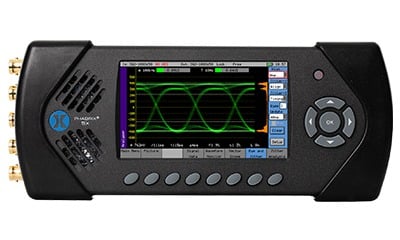
SxE
Portable 3G/HD/SD Generation, Analysis & Monitoring with Advanced Physical Layer Analysis
WHITEPAPER: Using Pseudo-Random Binary Sequences to Stress Test Serial Digital Interfaces
In this whitepaper, PHABRIX discusses the use of pseudo-random binary sequences (PRBS – also referred to as pseudo-random bit sequences), along with bit-error rate tests (BERT – also referred to as bit-error ratio tests) to stress test serial digital interfaces. The purpose of any physical layer serial digital interface (PHY) is to transmit or receive data whilst preserving that data’s integrity. In
practical systems the major cause of bit-errors is random noise. To stress test such systems, it is necessary to both generate a “noisy” bit stream and then analyZe the output from the interface to determine the bit-error rate which represents the integrity of the data.
Lets Keep In Touch
Find Us, Follow Us, Keep In Touch
Our Latest News Direct To Your Inbox
Products, Software, Events and More


